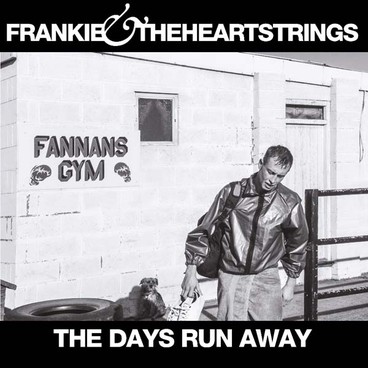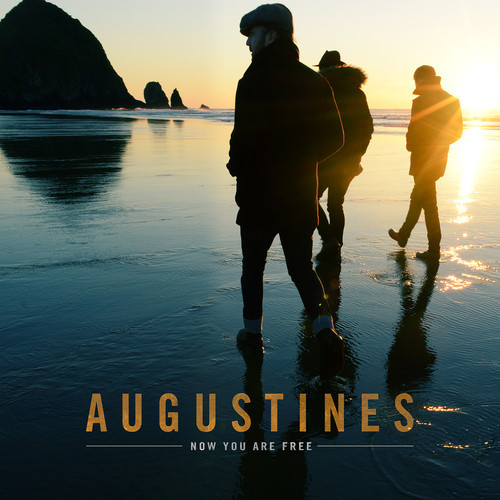FRANKIE & THE HEARTSTRINGS – The Days Run Away
aaamusic | On 17, Jun 2013
At my advanced age of 22, I wasn’t around for the eighties. But it’s always funny how hereditary musical identity pervades us even beyond our fleeting lifespans. Where the cultural ‘now’ is the ever snowballing culmination of what has come before us, everything that is ‘in’ is an ironic amalgamation of everything that is ‘out’. And thank God that’s the case.
Hailing from the oft-forgotten (and musically rich) city of Sunderland, Frankie & the Heartstrings are a band that stand out proud and highlight this fact, but they will also make you reconsider all those times you passed off your parents’ music tastes as uncool. Their sophomore album The Days Run Away sees the northern quintet bouncing and sweeping their way into British musical canon, proving single-handedly how to capture the brilliance of generic posterity while striking out as a characteristic face of your own generation, flying the flag as forerunners for the proudly chimeric UK music scene.
Opening with ‘I Still Follow You’, the new album doesn’t waste any time proving why these guys are an unavoidable jewel of current British music; all the trappings of Indie poprock are here, as flimsy sheets of guitar treble and energised rolling pounding drums ricochet off of clouds of subtle New Wave atmospherics.
Of course, the shades of British Indie Rock progenitors The Clash are here, but they channel them better than most; the guitar work is dynamic and noteworthy, with tracks like ‘That Girl, That Scene’ and ‘Right Noises’ rising in catchy staccato leads a la Maximo Park and The Vaccines, before dropping to growling Ramones-esque power chord lows. Other tracks such as ‘Invitation’ hold more gently glowing Two Door Cinema Club-style choral punches and slides, scratching cheekily into silvery grinning chords and jaunting with upbeat yet overcast vocals into a British summer peppered with festival stages. All the while eponymous frontman Frankie Francis flaunts the vocal swagger of homonymic group Frankie Goes to Hollywood’s Holly Johnson, Adam Ant, and even David Bowie, solidifying just what it is that gives this band so much character.
However, more melodic and measured chord work can be found in tracks like ‘Nothing Our Way’; carefully calculated in elevating swirls of what can only be described as the sunnier side of Johnny Marr’s work in The Smiths it is starkly aesthetically impressive and desperately beautiful. But the sun passes behind the clouds at the albums halfway mark with the solemn and genuinely upsetting ‘Losing a Friend’; rumbling, yet touchingly delicate, it’s a genuine gem.
Later standout tracks include ‘First Boy’, interesting because it showcases the band’s ability to channel an entirely different aesthetic; slower, swelling morosely aboard rolling perforatory bass and electric drumming, the offish spirit of The Jam rises on Neil Tennant-inspired vocal wings to glassy dystopian choruses and sombre dynamo lead lines. And opening with stop-start vintage rhythm and blues, ‘Everybody Looks Better in the Right Light’ explodes from Grease-like quirky punchiness into zany Talking Heads paroxysms, with wacky amelodic shoutalongs, hearkening to the explosive vibes of Scissor Sisters and even The B-52s, growling and escalating over a tremulous tremolo bass line bridge section.
At its heart, this album is one big catchy sing-a-long tune, shifting to represent all the joys and disappointments of a particularly eventful summer. Whether intentional or not, Frankie & the Heartstrings’s sound evokes the fearsomely campy and sexually liberating echo of Soft Cell, Pet Shop Boys, and more recently, Scissor Sisters, hitting the bullseye of British New Wave identity while simultaneously seizing so tightly the zeitgeist of current British Indie poprock. It’s so infrequent that we hear a band that dodges dreary cultural derivation so well, instead standing rich in so much heritage, with so many musical parallels that, to be honest, if you’re not impressed by listening to this album, you should feel a little ashamed.
Matthew Fellows




